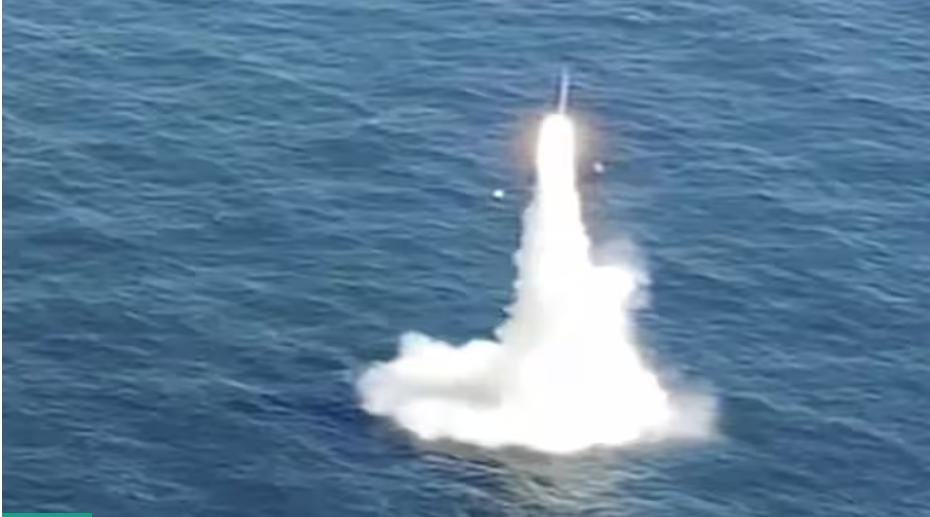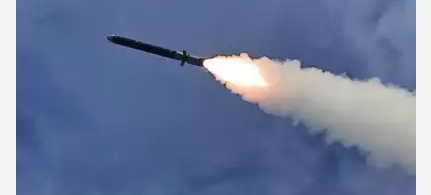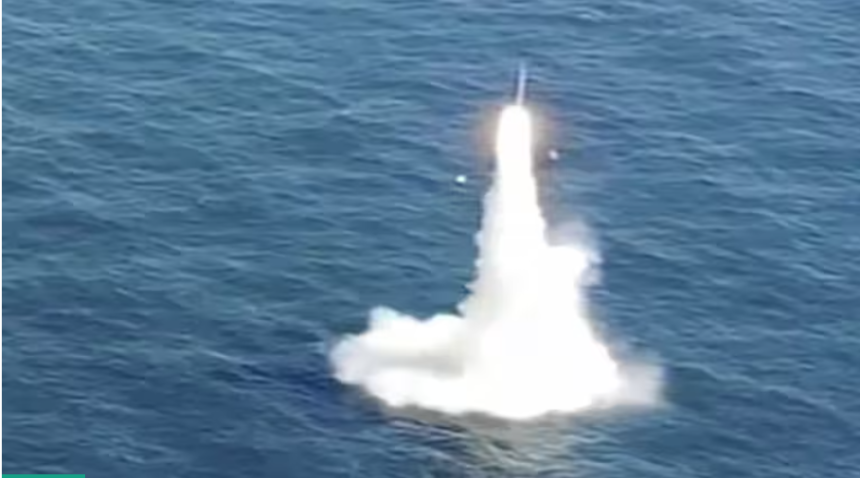China Test-Fires a bold display of military power, China has test-fired an intercontinental ballistic missile (ICBM) into the Pacific Ocean, marking a significant development in the global arms race. The launch, which took place under heightened international scrutiny, signals China’s continued efforts to modernize its military and assert its position as a global superpower. With the geopolitical landscape increasingly volatile due to tensions over Taiwan, the South China Sea, and U.S.-China relations, this missile test represents more than just a technical achievement—it is a strategic message to the world.
This article examines the implications of China’s missile test, analyzing its potential impact on global security, military strategy, and diplomatic relations. It also explores the broader context of China’s defense policies and the international community’s reaction to this provocative event.
China’s ICBM Test: Details and Objectives
The intercontinental ballistic missile test, reportedly launched from a secretive site deep within China, flew across the Pacific Ocean and landed in a designated zone several thousand kilometers away. Chinese authorities have been tight-lipped about the exact details of the missile’s capabilities, but defense analysts suggest that the ICBM was a new or upgraded version of China’s existing Dongfeng (DF) series, known for its long-range precision and nuclear delivery capabilities.
ICBMs are among the most advanced and powerful weapons in a nation’s military arsenal, capable of delivering nuclear warheads across vast distances, including intercontinental ranges. China’s ICBM arsenal is a critical part of its nuclear deterrence strategy, allowing it to target adversaries far beyond its borders. The recent test is likely aimed at both demonstrating China’s technological prowess and reinforcing its deterrent capabilities amid growing military competition.
One of the key objectives of this test could be to showcase China’s ability to strike targets in the Pacific, a region that includes U.S. territories such as Guam and Hawaii, as well as U.S. allies like Japan, South Korea, and Australia. This strategic positioning underscores the missile test’s importance in sending a clear signal to both regional and global powers about China’s expanding military reach.
Context: China’s Growing Military Power
The ICBM test comes at a time when China is rapidly modernizing its military. Over the past decade, China has invested heavily in building up its defense capabilities, with a particular focus on missile technology, cyber warfare, and artificial intelligence. This modernization effort is part of President Xi Jinping’s broader vision of making China a dominant military power by 2049, coinciding with the centennial of the founding of the People’s Republic of China.
China’s military strategy, often referred to as “active defense,” involves the development of advanced weaponry to protect its sovereignty and deter potential aggressors. As part of this strategy, China has placed a strong emphasis on its nuclear deterrence capabilities, which include land-based ICBMs, submarine-launched ballistic missiles (SLBMs), and strategic bombers capable of delivering nuclear payloads.
The test-firing of the ICBM is a reflection of China’s ambitions to strengthen its second-strike capability. Second-strike capability is the ability to respond to a nuclear attack with a retaliatory strike, thus ensuring mutual destruction in a nuclear conflict. This capability is essential for maintaining a credible nuclear deterrent, and China’s investment in modern missile systems is seen as a way to bolster its ability to respond to any threat, particularly from the United States and other nuclear-armed nations.  For the more information click on this link
For the more information click on this link
International Reactions: Heightened Tensions and Global Concerns
China’s missile test has drawn sharp reactions from the international community, particularly from the United States and its allies in the Indo-Pacific region. The U.S. Department of Defense has expressed concern over China’s growing missile capabilities, labeling the test as a “destabilizing act” that could further exacerbate tensions in an already volatile region. Military analysts in Washington believe that this test demonstrates China’s intention to challenge U.S. military dominance in the Pacific, China Test-Fires where the U.S. maintains significant strategic assets, including naval bases, missile defense systems, and air force installations.
U.S. officials have also pointed out that the test underscores the need for enhanced missile defense systems, particularly in the Pacific region. Guam, which is home to a U.S. military base, has often been cited as a potential target in the event of a conflict between the U.S. and China. With this missile test, China appears to be sending a clear message that its missile capabilities can reach U.S. territories, China Test-Fires raising the stakes for both sides.
Japan and South Korea, two key U.S. allies in the region, have also expressed concern over the test. Both countries are within range of China’s missile systems, China Test-Fires and any increase in Chinese military activity in the Pacific could lead to heightened security concerns. Japan, in particular, has been vocal about China’s military expansion, with Japanese leaders calling for stronger defense ties with the U.S. and other regional powers to counterbalance China’s growing influence.
At the same time, the test has alarmed smaller nations in the region, including Southeast Asian countries, which are already wary of China’s assertive behavior in the South China Sea. The fear is that China’s missile capabilities could be used to exert further pressure on these countries, particularly in territorial disputes over maritime borders.
U.S.-China Relations: A New Cold War?
The timing of China’s ICBM test is significant, China Test-Fires as it comes amid growing tensions between China and the United States on multiple fronts. The two nations are engaged in a fierce competition for global influence, with disputes ranging from trade and technology to military presence in the Indo-Pacific. In particular, U.S. concerns over China’s activities in the South China Sea and its increasing military posturing around Taiwan have led to a dramatic deterioration in bilateral relations.
In this context, China’s missile test can be seen as part of a broader strategy to challenge U.S. dominance, not just in the Pacific but globally. By demonstrating its ability to project military power across continents, China is sending a clear signal that it is not willing to be contained or deterred by U.S. military presence in the region.
Some experts have warned that the U.S.-China rivalry is increasingly resembling a new Cold War, with both sides ramping up their military capabilities and engaging in a dangerous game of brinkmanship. The risk, they argue, is that miscalculations or misunderstandings could lead to an unintended escalation, China Test-Fires potentially sparking a conflict with catastrophic consequences.
However, it is important to note that despite these tensions, both countries have so far avoided direct military confrontation. Diplomatic channels remain open, and there have been efforts to engage in dialogue, particularly on issues like arms control and cyber warfare. Nevertheless, China’s missile test is likely to strain these efforts and push both sides further apart.
The Global Arms Race: China’s Role in Shaping the Future of Warfare
China’s test of an intercontinental ballistic missile is not an isolated event, but rather part of a broader trend of increasing global militarization. Around the world, China Test-Fires major powers are investing heavily in new technologies that are transforming the nature of warfare. From hypersonic missiles to artificial intelligence and cyber weapons, the future of warfare is increasingly being shaped by rapid advancements in technology.
China’s missile test highlights the growing importance of missile technology in modern military strategy. ICBMs, with their ability to strike targets across continents, China Test-Fires are a key component of nuclear deterrence. As more countries develop and test advanced missile systems, the risk of a global arms race intensifies.
Russia, for example, has been actively developing its own next-generation missile systems, including hypersonic missiles that can evade traditional missile defense systems. The United States, meanwhile, is working on modernizing its nuclear arsenal and developing new missile defense technologies to counter potential threats from adversaries like China and Russia.
This arms race is not limited to the traditional nuclear powers. Countries like North Korea, India, and Pakistan are also developing their missile capabilities, China Test-Fires raising concerns about regional conflicts spiraling out of control. In this context, China’s missile test is a reminder that the global arms race is accelerating, and the risks of a miscalculation or unintended escalation are higher than ever.  For the more information click on this link
For the more information click on this link
Implications for Arms Control and Non-Proliferation
China’s ICBM test poses significant challenges for international arms control and non-proliferation efforts. The global framework for controlling the spread of nuclear weapons and missile technology is already under strain, with several key agreements either weakened or abandoned in recent years.
The Intermediate-Range Nuclear Forces (INF) Treaty, for example, which banned ground-launched missiles with ranges of 500 to 5,500 kilometers, was abandoned in 2019 after the United States accused Russia of violating the terms of the agreement. The demise of the INF Treaty has raised fears of a new arms race, China Test-Fires with both the U.S. and Russia developing new missile systems. China, which was not a signatory to the INF Treaty, has taken advantage of this vacuum to rapidly expand its own missile capabilities.
The future of arms control depends on whether the major powers, including China, can come together to negotiate new agreements that address the realities of modern warfare. However, with trust between the U.S. and China at an all-time low, and both countries focused on military modernization, China Test-Fires the prospects for meaningful arms control appear bleak.
Conclusion: A New Era of Strategic Competition
China’s test-firing of an intercontinental ballistic missile into the Pacific marks a pivotal moment in the evolving global security landscape. As China continues to modernize its military and assert its influence in the Indo-Pacific, the world is entering a new era of strategic competition. The missile test is not just a show of technological prowess—it is a clear signal that China is prepared to challenge the existing global order.
For the international community, the test raises critical questions about the future of global security, arms control, and the risk of conflict between the world’s major powers. ALSO READ:- SBI Reports Credit Demand from Indian Corporates Surging to ₹4 Lakh Crore: Analyzing the Trends and Implications for the Economy 2024





